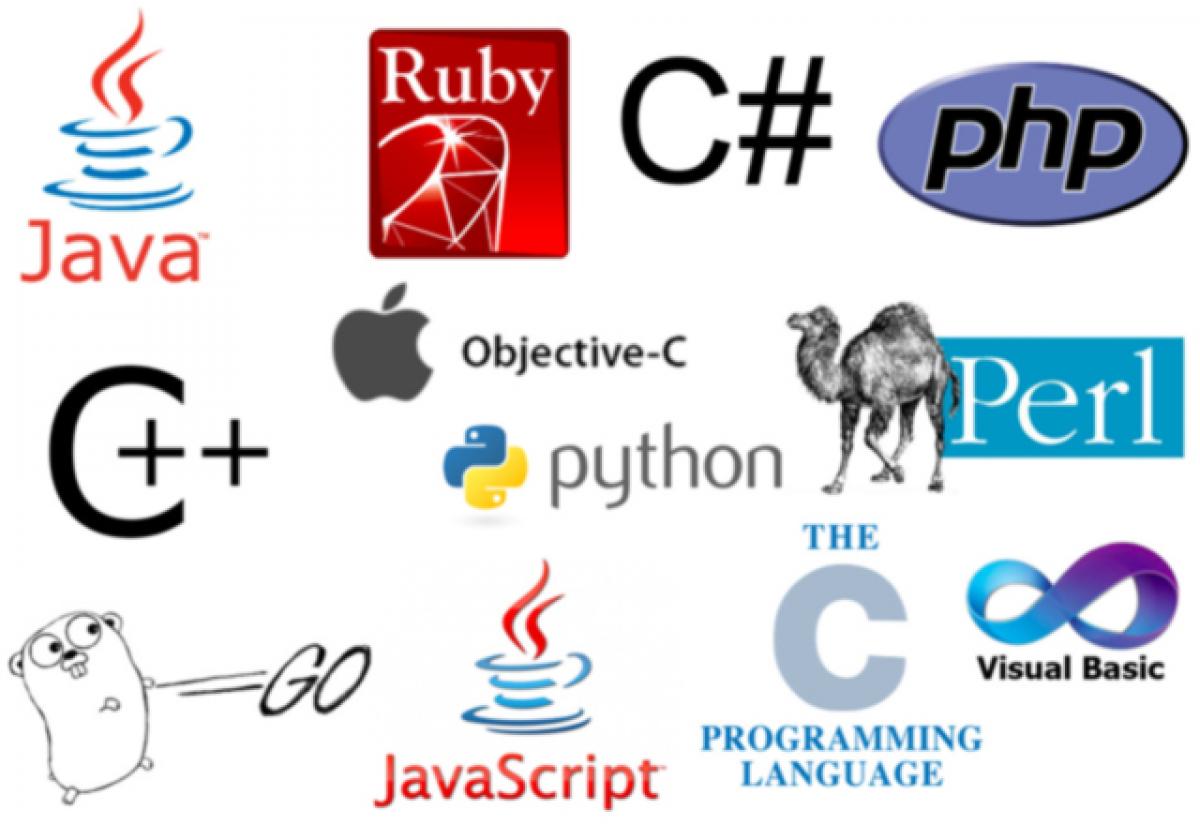Top ten programming languages that every techie must master

The most popular programming languages are used to code most of the applications in the world. Here are the 10 most popular now and insight into a handful on a rocket up the charts.
The most popular programming languages are used to code most of the applications in the world. Here are the 10 most popular now and insight into a handful on a rocket up the charts.
Java
This is no surprise. Java has been a key business programming language for the last three years. Everyone knows Java. It's one of the top languages taught in university computer science programs. It's both versatile and powerful, as long as you don't have to reach down to bare metal for your application.
And if you do need to reach down to bare metal, there's always …
C
For a language that started life telling long-distance telephone switches how to work, C has come a long way. It has been near the top of the "popular programs" list for three decades, and doesn't really show any sign of slowing down. C is powerful and the next best thing to assembler if you need to cut through all the APIs and SDKs and directly manipulate the hardware itself.
Of course, C is a procedural language, which places it one step above carving code into stone for many developers.
If you want the power of C in an object-oriented package, you can always turn to …
C++
Bjarne Stroustrup saw that C was powerful but hopelessly grounded in the past. In the early 1980s, he developed a pre-processor that gave C classes and objects, and he called it C++. It's a cliché to say that the rest is history, but really, there it is.
C++ has been a strong competitor to C since the mid-1980s, and has long since developed as its own language rather than a simple pre-processor for its foundation language. It is another language frequently taught in universities, and at this point we're well into the third generation of programmers growing up figuring out classes in C++.
Of course, if you need to write code similar to C++ but specially optimized for a Microsoft environment, you can turn to …
C#
In 2000, Microsoft made the strategic decision to develop a language based on C but optimized for the .NET environment. C# was the result. C# (pronounced "C sharp") is an object oriented language that makes it possible to create well engineered code using C-like syntax. Perhaps most important for many developers, C# is tied tightly to the Common Language Infrastructure (CLI), which allows a program to be written and compiled once, then executed on a variety of different platforms.
There are other ways to run applications on a variety of different hardware platforms.
One of them is to base the application on a Web interface, which brings us to…
Python
Python is one of the languages that splits the difference between being a scripting language and a full programming language. The thing that most often pushes Python over the line into "full programming" is the fact that it rarely stands alone. Python is most often used with a powerful framework that allows it to build powerful applications in specific markets.
Python doesn't have to involve the Internet, but there's a good bet that wherever you find an advanced Web application you'll find Python.
And in many of those advanced Web applications, you'll also find …
PHP
PHP is another of the scripting languages that has crossed over to be used as a general-purpose programming language in many organizations. PHP is more closely tied to a browser basis than Python is, though it can also live inside a number of application management systems and frameworks.
For those who keep track of such things, PHP is an interpreted language, which is a point in favor of keeping it in the scripting language camp. It also grew organically rather than as the result of a standards effort, and that shows in some of its quirks. Despite all that, PHP ranks highly on most lists of "languages you should know" if your aim is to make a living in the software development world.
If your corner of the software development world is surrounded by Microsoft, in addition to C# you probably want to learn …
Visual Basic [.Net]
OK, let's get a couple of things out of the way early. First, the name "Visual Basic.Net" is archaic. It had meaning around the turn of the millennium, when Microsoft was trying to distinguish the language that was part of its .Net framework from what had come before.
Next, if you think of Basic as a simple language reserved only for learning programming, you're old. And out of date. Move out of the 1970s and see how powerful Visual Basic can be. It's not the language you'll look to first for direct hardware control, but it's a perfectly suitable language for building business process applications, especially if you want those applications to incorporate functionality or an interface from one of the Microsoft Office applications.
If you're interested in a browser interface, rather than one from a personal productivity application, then you should look at..
Javascript
By now, everyone knows that Java and Javascript aren't really related. Javascript is one of the foundation languages of the Web, coming just behind HTML in ubiquity. As such, Javascript isn't going to live outside a browser interface, though it is possible to encapsulate that interface in a program that doesn't have to invoke a full browser instance every time it runs.
Javascript is becoming more completely functional as time goes on, with server-side implementations and Javascript in virtual machines taking it step-by-step away from the browser.
In general, though, it's a scripting language that carries a Web heritage with it. In that regard it's rather like
Perl
Perl is a language that pre-dates the Web by half a decade, and yet it has become linked with advanced Web applications. Much of that linkage is because Perl is so very good at working with text and text objects stored in databases. It is good despite being inelegant and occasionally brutal: Two words frequently used to describe Perl's approach to development are "chainsaw" and "duct tape."
Perl is an interpreted language often used for scripts that hold bits and pieces of larger applications together. It's unlikely that anyone is going to be able to make a career out of Perl alone, but it's absolutely a language that should be in every developer's toolkit.
The same could reasonably be said of…
Ruby
Unlike many of the languages covered in this article, Ruby is not primarily a scripting language. It is, rather, an object-oriented, compiled, full-featured programming language with a syntax that should be familiar to anyone who knows Python or Perl.
Ruby has been used to code frameworks and controllers, most notably Ruby on Rails, which provides structures for Web pages, databases, and other complex applications. While the two share language, they are not the same and should not be confused for one another.
At the beginning of this article I mentioned another set of languages that surprised me as a direction for the future. The surprising languages are React and React Native.
If you don't know about React and React Native, then you're already behind the curve. React is the Javascript framework that allows you to build applications with a Facebook interface. React Native is a further extension of the concept to let you build iOS and Android (and even set-top box) apps with Javascript.
Alvaro Oliveira said that these two frameworks are seeing tremendous growth in the number of companies looking for programming talent. Given their basis, they make a compelling case for learning Javascript and then adding React as a way to improve your chances of getting hired in 2016 and 2017.
That, then, is the list of current top languages, with some future language thrown in for good measure. What other languages do you think programmers should know? Do you think it's a mistake not to have HTML5 on our list? Why? It's a great set of questions and the answers are sure to be as diverse as the languages themselves. Let's talk about it in the comments section below.
Source: techgig.com
















